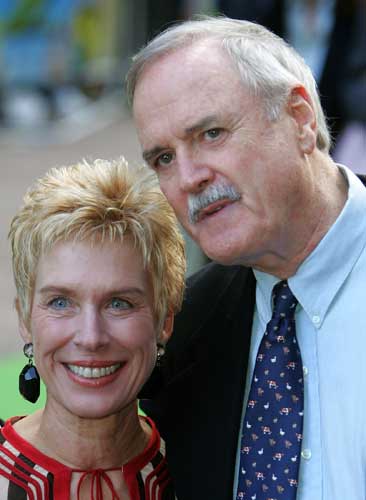Why the over-60s just can't wait to get divorced

They grew up in the era of free love, smoking cannabis and protesting against the war in Vietnam. Now members of Britain's "baby boom" generation have become hooked on an altogether different rebellion: divorce.
According to figures released by the Office for National Statistics, 13,678 people over the age of 60 got divorced in 2007, an increase of more than 1,000 on the previous year. This goes against the national trend, which saw the overall number of divorces fall for a third year in a row, to its lowest level in 26 years.
The latest rise means that the number of over-60s choosing to end their marriages prematurely has increased by more than a third in the space of a decade, as the so-called baby boomers – the generation born in the years soon after 1946 – continue to defy convention well into their maturity.
Many of the nation's over-60s benefited financially from the housing boom of the 1970s, and now enjoy good health and a higher life expectancy. These factors have contributed to the creation of an active and adventurous generation, whose members are reluctant to settle for a quiet life after reaching retirement age. Some travel the world or try out new hobbies, while others, it seems, choose to trade partners.
According to Emma Soames, editor-at-large of the over-50s' magazine Saga, members of the baby boom generation have always been proponents of "radical change" and are constantly hankering after something different, even in their old age.
She said: "This generation has always made it up as it went along. Even at the age of 60, they are just as likely to overthrow the convention of marriage as they have done to so many others all their lives. They think 'Do I want to spend the rest of my life like this?' and often decide that they don't. They realise they only have one life and that this is their moment."
Famous examples of people who have chosen to divorce after reaching 60 include the actor Morgan Freeman, 71, who separated from Myrna Colley-Lee, his wife of 24 years, at the end of 2007, and John Cleese, 68, who is currently negotiating a divorce from his third wife, Alyce Faye Eichelberger. When he was 61, Harrison Ford divorced Melissa Mathison, his wife of 18 years.
Ms Soames added: "People in their 60s are really very youthful and full of energy nowadays, and I don't think that they're prepared to compromise in their private lives. They might have been married to somebody for 30 years and have had children with them, but that doesn't mean they'll think that it's a good enough reason for spending the next 30 with them."
Experts have also cited "empty-nest syndrome" as a cause for the break-up of marriages after the age of 60. By this time, most couple's children will have left home permanently, and they can divorce without creating so much family upheaval. The change in lifestyle brought about by retirement can also be a cause of friction, with many people discovering that the extra time they have to spend with their spouse is not as blissful as they expected.
Janice Urquhart, 60, separated from her husband earlier this year after discovering that he was having an affair. A publisher for 20 years, she describes herself as an "independent" who is "fairly typical" of her generation.
She said: "I don't know a lot of other people my age who it's happened to, but I do know some. I suppose at one time people stayed in marriages that they were bored with because they couldn't do much about it, whereas now they can afford to go through with it and start again.
"I'm not saying that the separation hasn't hit me hard, but I've never been terribly dependent on my husband – we always had our own interests. I suppose there are people who would be quite lost if they didn't have their marriage, but I don't know if I was like that."
Join our commenting forum
Join thought-provoking conversations, follow other Independent readers and see their replies
Comments
Bookmark popover
Removed from bookmarks